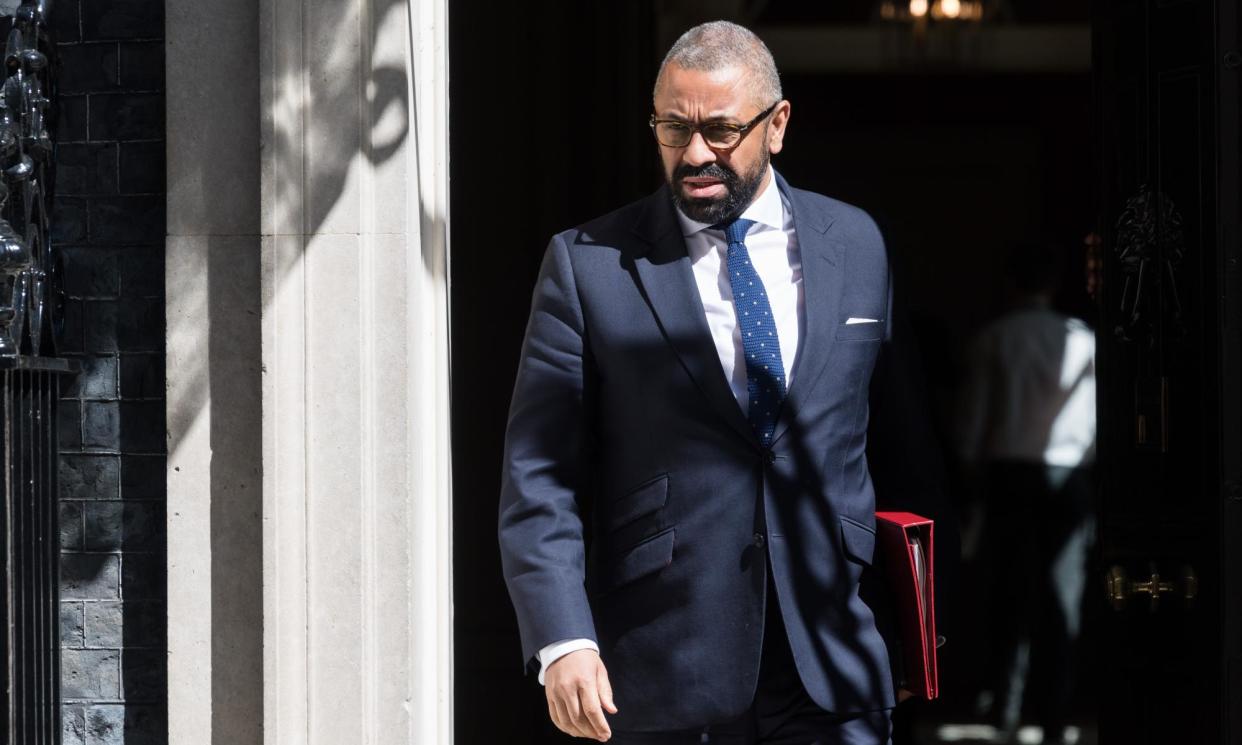UK to expel Russian defence attache as sanctions escalate

Russia’s defence attache is an “undeclared military intelligence officer” who will be expelled from the UK amid an escalation of sanctions, the home secretary has said.
James Cleverly also announced on Wednesday the removal of diplomatic status for several Russian-owned premises and told MPs the moves followed a pattern of “malign activity” across Britain and Europe.
The defence attache, named as Col Maxim Elovik, appears to have been in the UK since at least 2014 and has been pictured at wreath-laying ceremonies commemorating Russian war dead in 2020 and 2023.
It is the first time that the UK has ejected a Russian defence attache since the end of the cold war.
Prior to his posting in London, Elovik served as an assistant military attache at Russia’s embassy in Washington DC.
The announcement came after senior Conservatives called for further sanctions against Putin’s aides and allies, saying they were failing to hamper its economy or the activity of its agents.
In April, a British man was charged over alleged hostile state activity intended to benefit Russia, including by allegedly recruiting others for an arson attack on a Ukrainian-linked commercial property in London.
Cleverly told the Commons: “Today, in conjunction with the foreign secretary, I am announcing a package of measures to make clear to Russia that we will not tolerate such apparent escalations.
“I can tell the house that we will expel the Russian defence attache, who is an undeclared military intelligence officer. We will remove diplomatic premises status from several Russian-owned properties in the UK.
“We are imposing new restrictions on Russian diplomatic visas, including capping the length of time Russian diplomats can spend in the UK.”
Moscow will make accusations of Russophobia and spread conspiracy theories in response, Cleverly said. “In the coming days we should expect accusations of Russophobia, conspiracy theories and hysteria from the Russian government. This is not new and the British people and the British government will not fall for it, and will not be taken for fools by Putin’s bots, trolls and lackeys.”
Yvette Cooper, the shadow home secretary, said Labour supported the measures against Russia and would maintain support for Ukraine.
The Russian properties that have had diplomatic status removed include Seacox Heath in Ticehurst, East Sussex, and the Russian embassy’s trade and defence section in Highgate, north London.
Following the removal of diplomatic privileges, anyone who travels to or from Seacox Heath must notify the authorities. It is understood that the security services will continue to monitor the buildings in Highgate and Sussex.
Additional restrictions on Russian diplomatic visas have also been announced and will include limits on the duration of Russian diplomats’ stays in the country.
The measures come after a suspected arson attack on a Ukrainian-linked business in east London which authorities suspect was organised by the Kremlin.
The Crown Prosecution Service charged five individuals in relation to a fire that broke out at a warehouse on an industrial estate in Leyton, east London, in March, which was started using an accelerant such as petrol.
The warehouse is home to two parcel-delivery services: Oddisey and Meest Express, owned by Mikhail Boikov, a British-Ukrainian, and his wife, Jelena Boikova, who live in London.
The attack was part of an alleged conspiracy involving the Wagner group, the mercenary organisation with ties to Putin.
In April, two of the individuals were charged under the National Security Act. In a separate case, six Bulgarian nationals have been charged with conspiring to commit espionage on behalf of Russia in the UK. The expulsion and other sanctions are bound to lead to similar moves from Russian.
The government also passed sanctions on six men in February who were accused of running the “brutal prison camp” where the Russian opposition politician Alexei Navalny died.

 Yahoo News
Yahoo News 
